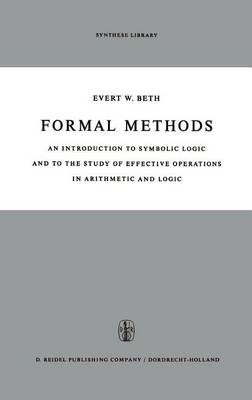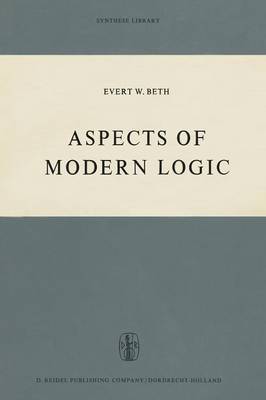Synthese Library
2 primary works
Book 4
Many philosophers have considered logical reasoning as an inborn ability of mankind and as a distinctive feature in the human mind; but we all know that the distribution of this capacity, or at any rate its development, is very unequal. Few people are able to set up a cogent argument; others are at least able to follow a logical argument and even to detect logical fallacies. Nevertheless, even among educated persons there are many who do not even attain this relatively modest level of development. According to my personal observations, lack of logical ability may be due to various circumstances. In the first place, I mention lack of general intelligence, insufficient power of concentration, and absence of formal education. Secondly, however, I have noticed that many people are unable, or sometimes rather unwilling, to argue ex hypothesi; such persons cannot, or will not, start from premisses which they know or believe to be false or even from premisses whose truth is not, in their opinion, sufficient ly warranted. Or, if they agree to start from such premisses, they sooner or later stray away from the argument into attempts first to settle the truth or falsehood of the premisses. Presumably this attitude results either from lack of imagination or from undue moral rectitude. On the other hand, proficiency in logical reasoning is not in itself a guarantee for a clear theoretic insight into the principles and foundations of logic.
Book 32
It is common to consider an area of science as a system of real or sup posed truths which not only continuously extends itself, but also needs periodical revision and therefore tests the inventive capacity of each generation of scholars anew. It sounds highly implausible that a science at one time would be completed, that at that point within its scope there would be no problems left to solve. Indeed, the solution of a scientific problem inevitably raises new questions, so that our eagerness for knowledge will never find lasting satisfaction. Nevertheless there is one science which seems to form an exception to this rule, formal logic, the theory of rigorous argumentation. It seems to have reached the ideal endpoint of every scientific aspiration already very shortly after its inception; using the work of some predecessors, Aristotle, or so it is at least assumed by many, has brought this branch of science once and for all to a conclusion. Of course this doesn't sound that implausible. We apparently know what rigorous argumentation is; otherwise various sciences, in particular pure mathematics, would be completely impossible. And if we know what rigorous argumentation is, then it cannot be difficult to trace once and for all the rules which govern it. The unique subject of formal logic would therefore entail that this science, in variance with the rule which holds for all other sciences, has been able to reach completion at a certain point in history.

